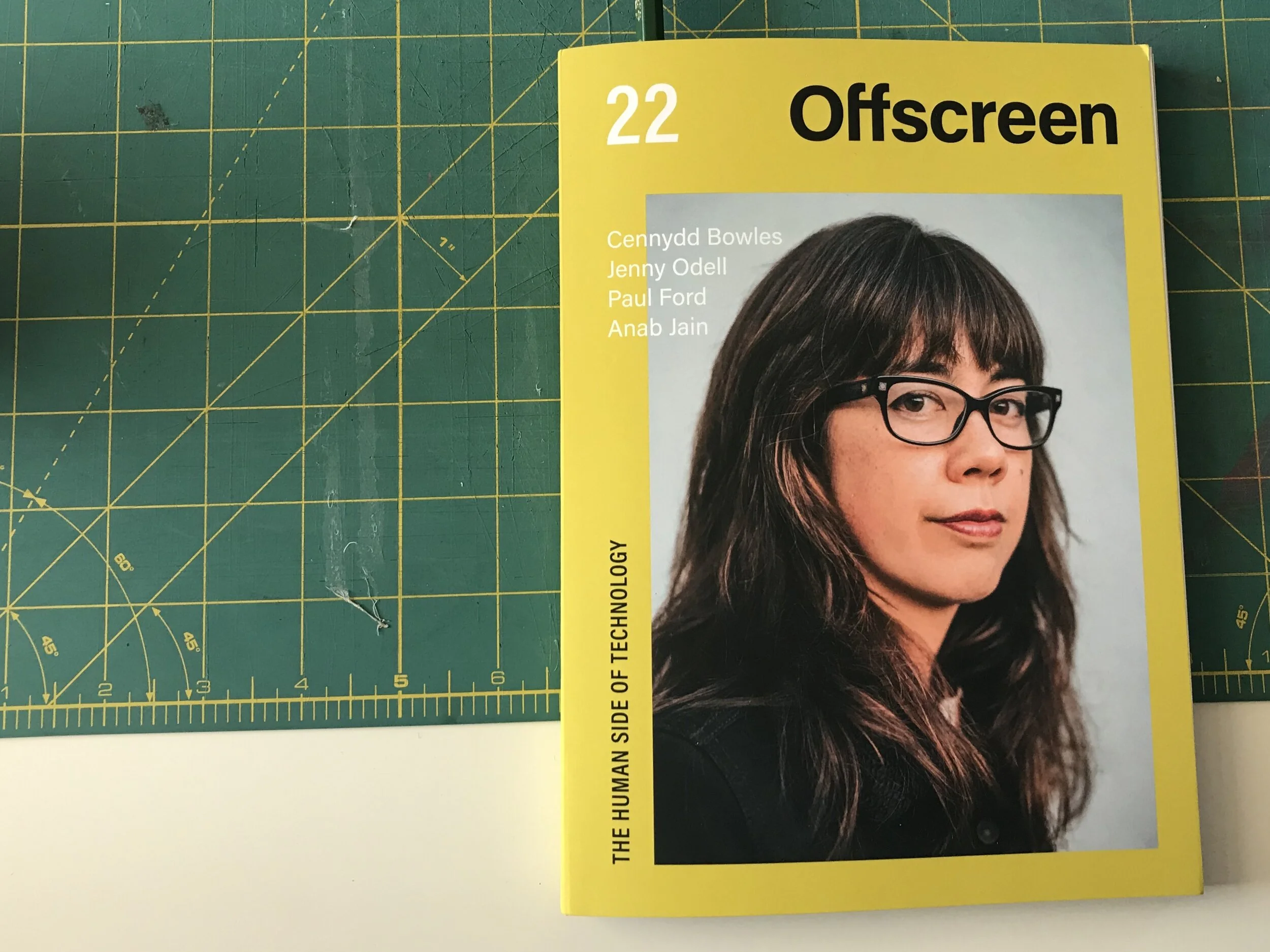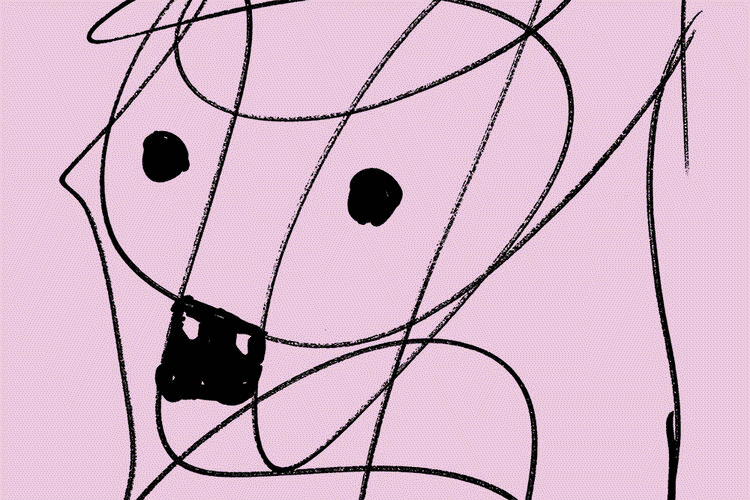Garage collage is what happens when you make art from found materials in your garage, turn your garage into a gallery, and invite your neighbors over for an art show.
Read MoreEver feel like your a flag blowing in the wind without a flag pole? It's not a great feeling. But it happens to everyone. One way to reduce these moments, (can't promise to eliminate flag pole-less days), is to have a sense of purpose, (a why), that acts as your flag pole. With a connection to your purpose, it's a lot easier to have a sense of direction for your actions, projects, missions, etc. The "What is your Purpose/Project?" worksheet is a tool that introduces you to your true self so that you can make something great for the world.
Read MoreWhat are you supposed to do when a critique is scheduled, but your students are sprinkled across the Mid-West? On top of that, everybody wants to see each other, but not talk about their work. That's the situation my senior capstone class faced when school resumed after spring break, amidst the Covid-19 Pandemic. The schedule says we have a critique. We should have a critique. Or, not?
Read MoreI'm reminded of the book Bird by Bird, by Anne Lamott. The name comes from a story she tells of her brother attempting to write an assignment on birds one the eve of the deadline. He asks their father how he'll ever accomplish the tasks. The father says, "Bird by Bird." In other words, by chunking the project into parts. Rather than focus on three birds at a time, focus on one. Further, instead of writing about the whole bird, start with a small piece (like it's unique wing span, or strange habits, like this weird mating dance).
Read More"Distract yourself with value-driven action; lots of action. Serve your community, serve your kids, serve yourself (both body and mind), produce good work. Try to fit in a few moments of forced gratitude, just to keep those particular circuits active." - Cal Newport
Read MoreThat an answer I hear most from design students when they describe their target audience. The problem with that answer is that it’s incredibly vague and unhelpful. For instance, I’m a millennial, and I’m 35 years old. I’m also a professional designer, adjunct professor, and working towards a master’s degree. More than my work, I hope to be a decent husband to my wife, pay attention to what’s spiritual, and nurture lifelong friendships.
Read MoreI set a goal this year to spend more time with other local independent designers. The hope is that we can support each other in the many challenges we face wearing too many hats. I was already meeting with a group sporadically for lunch, and this year, we decided to formalize and meet monthly. Win!
Read More“There’s an Alfred North Whitehead quote that he said: “Sometimes I give a student an A or B instead of a C or a D because they’ll earn it 20 years from now.” A good teacher will lodge education in a student’s mind that may not bear fruit for 10, 15 years.” - Quote by Hollis Robin
Read MoreI wanted to wrestle because I discovered that my dad was a wrestler. My dad is a bit of a black box, so when I learned that he wrestled, I joined the wrestling team. There’s probably some psychological explanation for my decision. My hunch is that I wanted to connect with my dad (especially after I quit baseball). But, this isn’t about why I started to wrestle, it’s about quitting.
Read MoreI confided in a dear friend and fellow designer recently about how I get a weird feeling in my stomach when a potential client emails or calls me. I’m never excited. I compare it to how I felt playing baseball as a teenager. The older I got, the more I dreaded playing baseball. Before games, I would pray for a rain out. I didn’t enjoy the game and it didn’t help that I was terribly afraid of getting hit by a pitch, or a line drive. For my teammates, it all seemed to come naturally. For me, I would have rather stayed home and played Final Fantasy IV.
Read MoreIt's the beginning of the year (early January 2020); I have a sinking feeling in my stomach. I have this notion that after taking an extensive Christmas break (two weeks), I need to occupy every second of my workday with billable activities. How else will the mortgage get paid? Uneasiness rose this morning as I wrote a monthly update for Trischler Design Co. Was I using up time that won't produce an economic return? It was serendipitous timing then that I decided to start reading an interview with Jenny Odell in the latest issue of Offscreen. She's the author of a book called How To Do Nothing.
Read More2019 was a great year. Here are a few highlights.
Read MoreResearch is hard. That’s what I’m learning as I simultaneously teach a lecture about design research and take a class about design research this semester (fall 2019) at the University of Cincinnati, DAAP. Why is research so hard? Because even though there are hundreds of six-step research (and design) models out there, the path to success is anything but linear.
Read MoreHow can I ask my students to do something (write a code of ethics) that I hadn't done myself? That question led me to my first take on a code of ethics that is written below. I decided to keep my set simple. It's three points. They're each inspired by Jesus' temptations by the Devil in the desert. Before you discount that source, think about it. It doesn't matter whether or not you believe in the carpenter.
Read MoreEthics. That was the resounding theme of The Design of Business | The Business of Design conference at MIT this past weekend. It was also what attracted me to the event (beyond rubbing shoulders with my favorite living creatives).
Read MoreThis month, Katie Parker, a fellow DAAP professor, asked me to share with her Professional Practices class what it's like running an independent design business. I took the opportunity to share the practical, non-sexy, advice I wish someone gave me before I started my business.
Read MoreAs a teacher, I am grateful to play a role in preparing design students to tackle problems differently, today and in the future. I'm noticing that the biggest hindrance to that kind of creativity is an inability to design with the whole body: the head, the heart, and the gut. I know this well because I'm not so good at it either. Here's my basic understanding of each of the parts and what it means to design from each.
Read MoreIt’s the end of February, and we’re about at the half-way point through the spring semester. I’ve been teaching the Senior Capstone course at DAAP. The primary purpose of Capstone is for the students to exhibit the skills they’ve acquired during the last four years at DAAP. In that way, “teacher” isn’t quite the right description for my role because the end goal isn’t to learn from me. My job is to help the students express their knowledge and to encourage them through the most extended project they’ve worked on to date. It’s a lot more like the role of a coach.
Read MoreI’ve been working with students as an adjunct professor at DAAP, and I consistently find them stuck in the middle of a design block.
Read More









